CIRJE Conferences 2008
- UT-LSE Economic History Conference 2009: Economic Geography in Historical Perspectives, January 7, 2009
- Symposium organized by the Japan Federation of Housing Organizations and CIRJE, "Enhancing Japanese economy and the role of housing industry.", November 25, 2008
- The 42nd Public Policy Seminar The Swedish Model: Combining Welfare and Economic Growth , November 17, 2008
- ASFRC Tokyo Meeting, July 4 and July 5, 2008
UT-LSE Economic History Conference 2009: Economic Geography in Historical Perspectives
- Organizers:
London School of Economics
Faculty of Economics, University of Tokyo - January 7, 2009
- Venue: Meeting Room, Faculty of Economics, University of Tokyo
- Conference Program
We held a conference on "Economic Geography in Historical Perspectives" at Faculty of Economics, The University of Tokyo on January 7th, 2009. This is the third meeting of the series of economic history conferences between the University of Tokyo and London School of Economics (LSE), which started in December 2006. This time, we invited three economic history researchers from LSE, financially supported by the Advanced Program in Economics. Besides the people from LSE and the University of Tokyo, we had participants from Tokyo University of Science, Tohoku University and IDE-JETRO. The papers presented and the discussants are as follows.
Peter Howlett (LSE) "Barro and Sala-i-Martin Revisited: Post-war Regional Convergence through a Distribution Dynamics Lens" (Discussant: Takashi Kano)
Julen Esteban-Pretel (University of Tokyo) " On the Role of Policy Interventions in Structural Change and Economic Development: The Case of Post-war Japan" (Discussant: Masaki Nakabayashi)
Kaori Ito (Tokyo University of Science) "An Information Theoretic Approach to Identify Spatial Patterns of Industrial Agglomerations (Discussant: Tomohiro Machikita)
Max Schulze (LSE) "Backward and Remote?: GDP and Market Potential in the Regions of East-Central Europe, 1870-1910" (Discussant: Kentaro Nakajima)
Kentaro Nakajima (Tohoku University) "Agglomeration or Selection?: The Case of the Japanese Silk Reeling Industry, 1896-1916" (Discussant: Janet Hunter)
Spatial economics is one of the fields of economics which have developed most remarkably since the 1990s, and it has been giving an impact on the economic history research. The papers presented are recent studies on historical economic geography and related studies on economic growth. At the conference, we discussed those papers and exchanged ideas about such issues as the methodology for identifying industrial agglomerations, the new estimate on regional GDP and market potential in the nineteenth century Europe, and identification of the mechanisms of agglomeration economy.
Symposium organized by
the Japan Federation of Housing Organizations and CIRJE,
"Enhancing Japanese economy and the role of housing industry."
- Organizers:
Faculty of Economics, University of Tokyo
Center for International Research on the Japanese Economy, University of Tokyo - Supported by the Japan Federation of Housing Organizations
- November 25, 2008
- Venue: Lecture Hall No. 1, Faculty of Economics, University of Tokyo
- Symposium Program (in Japanese)
In this symposium, firstly Professor Motoshige Itoh gave a lecture on the title of "Enhancing Japanese economy and the role of housing industry." Then, a panel discussion was held where Professor Toshihiro Ihori chaired and four panelists were Professor Yoshistugu Kanemoto, Mr. Izumi, and Mr. Okamoto.
The 42nd Public Policy Seminar
The Swedish Model: Combining Welfare and Economic Growth
- Organizers:
Division for International Relations,
Graduate School of Public Policy,
CIRJE, The University of Tokyo - November 17, 2008
- Venue: Fukutake Learning Theater, Fukutake Hall, University of Tokyo
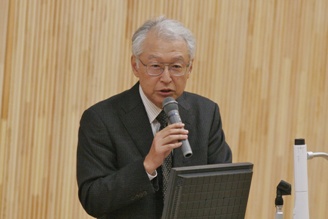
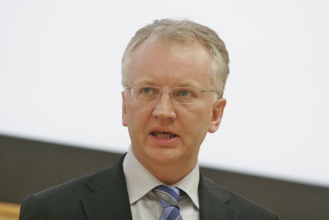
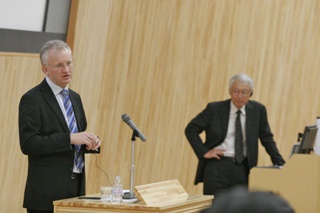
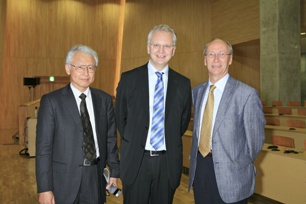
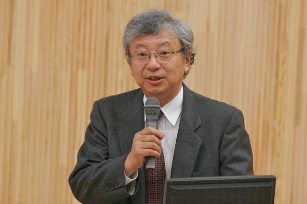
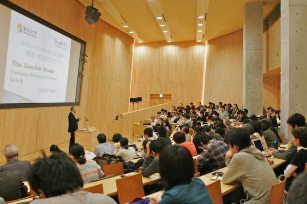
Mr. Par Nuder, Former Finance Minister of Sweden gave a speech at Public Policy Seminar, and CIRJE supported it as one of organizers. Summary of his speech is uploaded on the GraSPP website (in Japanese).
ASFRC Tokyo Meeting
- Organizers:
Center for Advanced Research in Finance, University of Tokyo
Center for International Research on the Japanese Economy, University of Tokyo
Japan Bank for International Cooperation
Global Security Research Institute, Keio University
JSFRC - July 4 and 5, 2008
- Venue: Auditorium, Headquarter of JBIC, and Meeting Room, Faculty of Economics, University of Tokyo
- Conference Program
The Asian Shadow Financial Regulatory Committee (ASFRC) is a group of independent experts on economic policy issues relevant to financial markets and the financial industry of the Asia-Pacific region. ASFRC members are independent of any of the members' affiliated institutions. The policy recommendations of ASFRC are its own. Typically, ASFRC tries to translate concepts drawn from academic literature into concrete policy recommendations. The theme of the Tokyo meeting was "Accumulation of Foreign Exchange Rate Reserves and the Role of Sovereign Wealth Fund". We discussed the role of Sovereign Wealth Fund (SWF)under excess capital accumulation and explored a solution that may lead to efficient resource allocation in global economy. ASFRC proposed the statement "Making Sovereign Wealth Funds Mutually Beneficial" at the end of the meeting.


color.png)